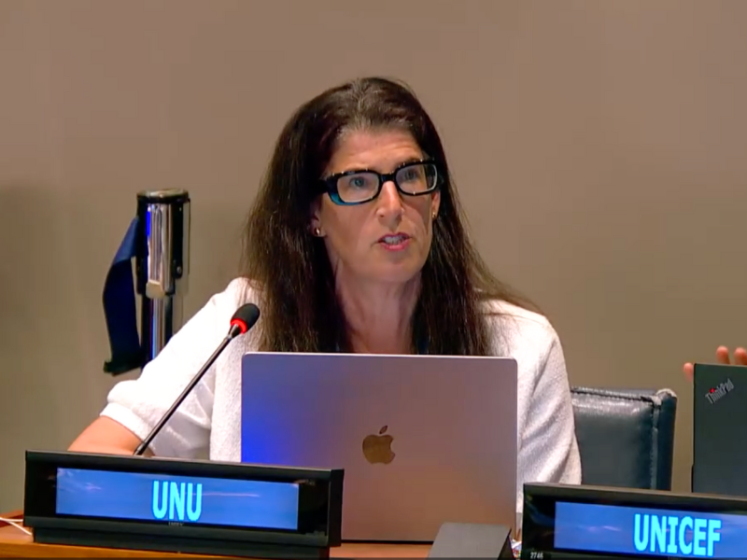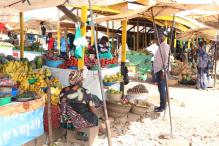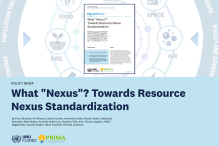Dr. Nicole Goldin, Head of Equitable Development at UNU-CPR, delivered a formal intervention during the SDG 8 session of the 2025 UN High-Level Political Forum on Sustainable Development.
In her remarks, she emphasized the role of decent work and employment in reducing poverty and inequality, and in fostering inclusive, sustainable growth. Drawing on UNU-CPR’s research, she reiterated the importance of connecting employment agendas with domestic revenue mobilization, supporting micro and small enterprises, and inclusive labour force participation, particularly for women, youth and older persons.
Goldin also highlighted the need for intergenerational approaches to digital and AI policy, and investing in financial inclusion and human capital to tap into the demographic dividend potential in low- and middle-income countries. Her statement reinforced UNU's commitment to evidence-based research in support of the 2030 Agenda.
The full statement is below, and available to watch here.
Thank you, Mr Chair.
Excellencies, Distinguished delegates.
We know decent work and employment are central to reducing poverty and inequalities and promoting inclusive, sustainable country-led growth. For this reason, they are a priority of our equitable development policy research at UNU-CPR.
As we are on the heels of the Fourth International Conference on Financing for Development (FFD4) and moving to implementation of the Compromiso de Sevilla, it is important to connect the jobs agenda to mobilizing domestic revenues and fiscal space – recognizing the criticality of decent work in growing the tax base and increasing productivity.
In part, more effort must be made to expand employment and earnings through supporting micro and small businesses and supply chains; including through formalization as most of the world’s workers (six in ten) and enterprises (eight in ten) remain in the informal economy where pay and working conditions can be meagre.
More attention should also be paid to generating demographic dividends by increasing the human capital and workforce participation of women and youth, as well as older people who want to remain in work.
This includes taking an age-based approach to AI, digital policies and deployment to ensure intergenerational opportunities are optimized.
The global gap between men and women in employment is 24 per cent and tends to be even higher in parts of the Global South – in the Middle East and North Africa, for example, female labour force participation is under 20 per cent, while it's over 70 per cent for men.
With clear links to SDG 5, improving access to care, laws, education and technology should be prioritized.
Among youth worldwide, some 20 per cent are not in education, employment or training (NEET) and struggle to secure decent work or start a business due to inadequate job creation, skills mismatches or lack of credit or mobility, among other challenges.
An estimated 1.2 billion young people are set to enter the labour force in low and middle-income countries over the next decade – and just 400 million jobs are due to be created.
This math means policies must engage and ensure private sector viability and accelerate sectors strategically.
Countries can also see sizable economic gains from the so-called silver economy: the work and purchasing power of those over the age of 50 which has generated an estimated $45 trillion in value annually worldwide.
In the Global South, countries such as Ghana, Cambodia and Vietnam, where economic activity of the over-50s account for 40 per cent of GDP, exhibit this potential.
This requires investments in health and longevity, along with reskilling, financial inclusion and business operations support.
Finally, let’s remember that decent work is not only a matter of economic growth and a force multiplier for achieving SDGs, but is a matter of human dignity, and a matter we at UNU CPR remain committed to offering to evidence-based research and innovative solutions to advance.
Thank you.



